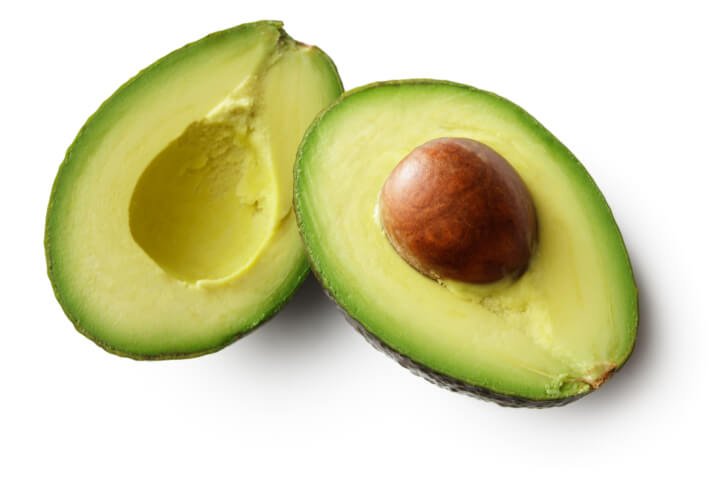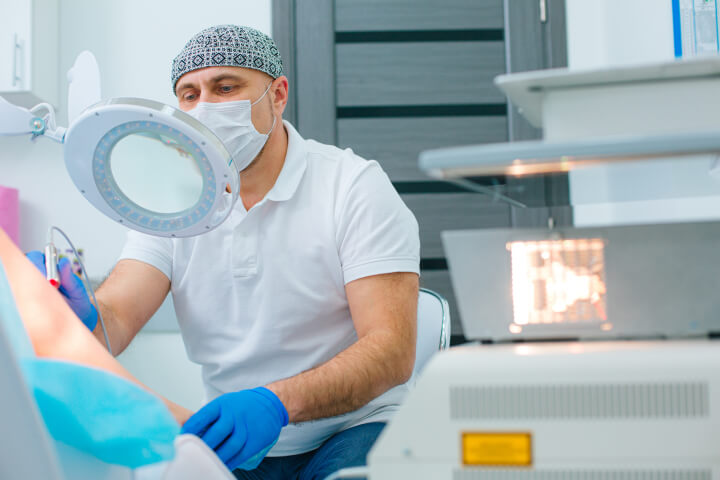There's no denying that a varicose vein can be excruciatingly painful. It’s usually caused by a faulty or damaged vein and other factors. Similarly, there’s a range of factors that can raise the probability of having a venous disease. Various factors, such as genetics, obesity, chronic venous insufficiency, and pregnancy, contribute to this vein problem. Fortunately, studies reveal that they can be avoided.
So what’s a healthy diet for varicose veins? Many experts agree that foods high in rutin are the best for varicose veins. The flavonoid has a plethora of benefits that have a broad range of effects on the body. Rutin also protects blood vessels, prevents blood clots, and stops constipation. Apples, buckwheat, grape seed extract, cherries, apricots, and blackberries are all-natural sources of bioflavonoid.
Over 20 million Americans suffer from varicose veins, but a recent study shows that many of them can significantly decrease their symptoms by making a few simple dietary changes. Consuming highly processed foods with little fiber, for instance, can trigger vein-inhibiting constipation and, eventually, an unpleasant spider vein, whereas salty food can increase the volume of fluids in the veins, putting more blood pressure on them.
But since blood flow is essential to healthier veins, patients should be aware of which foods will help or hinder their blood circulation. While fresh fruit and vegetables are an excellent place to start, for people searching for a diet that’s especially good for vein health, some foods can help.
Flavonoids are categorized as nutritional supplements. They’re primarily derived from plants, such as citrus fruits, and contain antioxidants, also anti-inflammatory assets. Daflon (MPFF) is a recent naturally derived substance that some claim relieves leg pain and swelling.
Read More: What Are the Best Vitamins for Varicose Veins?

Avocados contain vitamin C and vitamin E, natural components that are best for vascular health. Avocados are also high in glutathione, which protects the arteries, veins, and heart from oxidative stress.
For centuries, ginger has been used as a spice and for its therapeutic properties. It's a treatment for deep vein thrombosis and other vein problems. It’s because it promotes circulation and dissolves fibrin in blood vessels. Fresh ginger is preferred because it has an extra-strong flavor and is more effective in vein health.
Since it stimulates blood flow, rosemary is frequently advised for the treatment of varicose veins. It also contains rosmarinic acid, a component that prevents free radicals that damage the tissues.
Asparagus is among the highly recommended vegetables for healthy veins. It prevents rupturing and vein disease. Asparagus contains numerous vitamins and minerals, including vitamins A, C, E, K, fiber, folate, and chromium.
Soluble fiber assists in the prevention of constipation. Constipation can put pressure on the veins, contributing to the emergence of varicose veins. Insoluble fiber also aids in cholesterol reduction. High fiber foods such as oats, apples, flaxseed, carrots, berries, and barley, are beneficial for preventing swollen veins and maintaining vein health.
It’s a centuries-old solution for an extensive range of diseases. Hippocrates (400 BC) referred to it as the "cure of cures." It's also widely used in recent herbal medicine as a treatment for varicose veins. Watercress contains 312 percent of the daily permissible limit of vitamin K. It has plenty of vitamins B1, B2, B6, C, E, manganese, carotenes, iron, calcium, copper, and dietary fiber.
Simple carbohydrates, or refined carbs, are associated with chronic illnesses such as diabetes. White bread, among the most frequently eaten refined carbs, is a tough cycle to break. Nevertheless, it’s critical to substitute simple carbs with complex carbs fiber rich food. Better options include high fiber bread, brown rice, horse chestnut, steel-cut oats, chia seeds, and whole grains.
Crispy fried chicken, donuts with bacon and maple glaze, a burger and french fries — These "treats" may sound tasty, but they’re not beneficial for the body.
These foods lack nitric oxide and have little — if any — nutritional benefits. They’re also frequently high in sodium. A further reason to avoid these foods is that the high-fat content, combined with the lack of fiber, slows down the intestines, resulting in constipation and poor bowel movement.
Straining can provoke pressure to build up in the veins of the lower rectum, causing damage and, in some cases, hemorrhoids or worsening varicose vein symptoms.
Salt contains sodium, so the body will retain water. As a consequence, blood flow expands, blood pressure rises — putting strain on the vein walls. Water pools in the lower extremities, ankles, and legs frequently swell, causing bulging leg veins.
Alcohol is a diuretic, so you could end up in dehydration. Dehydration has an impact on the circulatory system and can make a person feel sluggish. The body functions harder to transfer blood throughout the body, putting additional strain on the venous system and exacerbating the symptoms and severity of varicose veins.
Desserts, cookies, and candies are impossible to resist. However, high blood sugar levels produce excess insulin that’s released into the circulatory system. Sugar, like salt, can be concealed in foods that aren't sweet treats, such as salad dressings and flavourful crackers.
Prefer foods containing natural sugar to satisfy the sweet tooth. Whole fresh fruits are a wise choice because, while they have sugar, natural sugar releases slowly into the bloodstream. Fruit also contains fiber, which is a plus.
Read More: How to Treat Varicose Veins in Men

If you have varicose veins, it’s vital to see a vein or vascular specialist as soon as possible. If the condition is minor, it can be concealed by wearing compression stockings. However, if it remains untreated, it can worsen over time. Treatment for a patient's varicose veins is determined by the severity of the veins and other medical factors. Dr. Rahul Sood, our board-certified vein specialist at The Vein Center Doctor, will discuss all of your options, listen to your concerns, and illustrate a treatment plan in simple terms.
We value our patients' experiences as much as their outcomes, and we promise to take better care of you. If you're searching for varicose vein treatment, contact us today to book a consultation.
Most Insurance is accepted for treatment